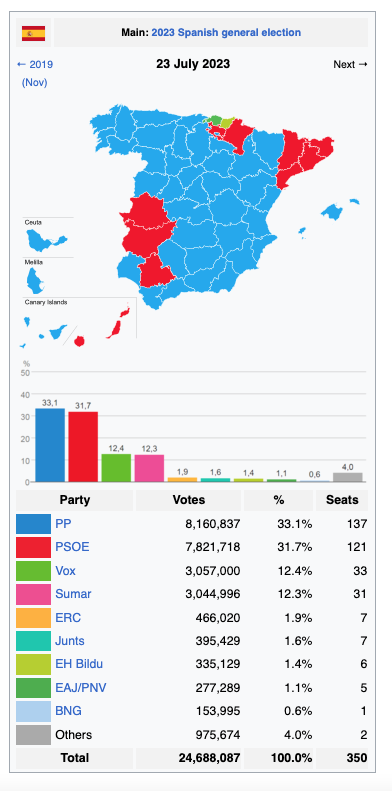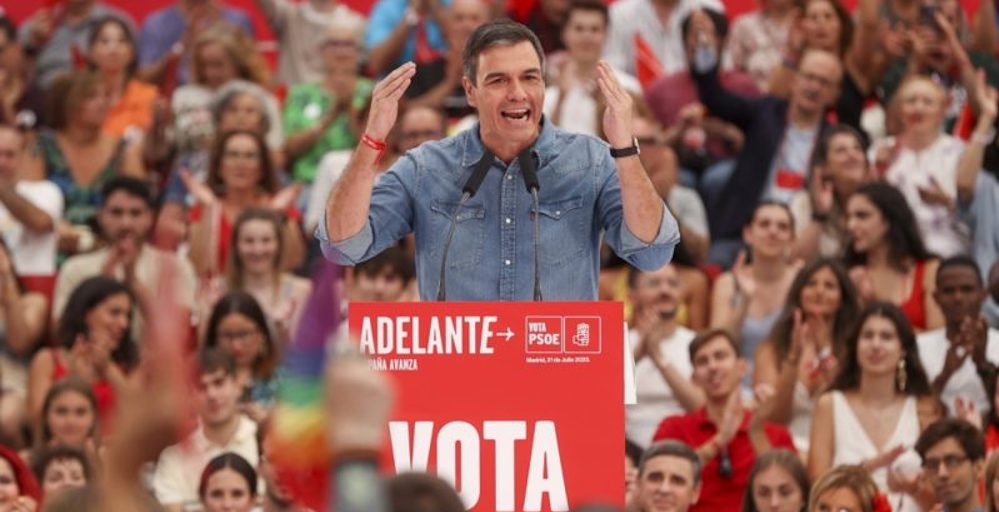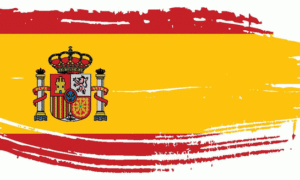(Editor’s note: Spain is one of the most popular destinations for expats, both Americans and British. But Spanish parliamentary politics are, well, complicated, with one party rarely winning an outright majority. That means long, tough negotiations with other parties to form coalitions. German expat in Spain Inka Piegsa-Quischotte has an explainer of an election where questions about the final outcome still linger.)
Considering the events and political struggles in Spain during the last weeks, it seems appropriate to give this post the adapted title of Raymond Chandler’s 1953 crime novel “The Long Goodbye.” Granted, nobody was murdered and as far as the mental health analogy is concerned, that is debatable. But it certainly was a hard, long and controversial ride.
Form your own opinion.
That’s why we here; to explain in as much details as possible what has happened since the election result became known.
As of 16 November, Spain has finally a new prime minister, Pedro Sánchez, leader of the Socialist Party PSOE. He has held this office for the last four years.
The real trouble started with the mandatory general elections on 23 July 2023.
Like most of Europe, Spain has a parliamentary-style government, with a broad range of parties represented from socialists to far-right.
Read about Spain’s main political parties and a brief profile of their leaders here.
These are just the parties that were represented in the general elections. To give you a complete picture, here is a list of the many other parties, not to mention regional interest groups.
Don’t forget that Spain is a state that is composed of 17 autonomous provinces and two autonomous cities, Ceuta and Melilla, both of which are physically in Morocco, remnants of Spain’s colonial past. This diversity also means that each province has its own needs and interests which often differ widely.
A political labyrinth
Prime example is the separatist movement, foremost in Cataluña but in other provinces too.
Let’s look at the election results first: 350 seats in Congress had to be distributed. This graphic shows a clear picture of the system and the results.
The right wing People’s Party was the winner over the sitting PSOE, the Spanish Socialist Worker’s Party.

That made the PP leader, Albert Nuñez Feijoo, a candidate for president. But Feijjoo could not accumulate enough votes to be vested as president, failing in the first attempt, falling four votes short.
Sánchez was next, but he could not go it alone, either. In his own words, he would leave no stone unturned to gather all the votes he needed for an absolute majority, which meant long and fierce negotiations with all parties.
A crucial point was the promised amnesty for the Catalan politicians convicted for their role in the declaration of a referendum six years ago to vote for the independence of Cataluña.
That referendum was declared illegal and the politicians involved convicted and send to prison. The ex-president of Cataluña, Carles Puigdemont, fled to Belgium. But Puigdemont was still a very influential force and Sánchez needed his vote for president. So, other parties also had to approve the amnesty, which was fiercely opposed as unconstitutional (and still is) by civil groups.
Read more about that deal here in the Guardian.
One big snag remains
Finally, on 16 November, it was agreed all around which meant Sánchez got elected with the necessary majority and swore last week to uphold the constitution before King Felipe VI.
In the beginning, the parties considered solving the dilemma by having both candidates serve as presidents, alternating for two years each. But that idea.was quickly abandoned as there would have been no continuity in the government.
One hurdle remains.
As per the constitution, the king has to sign the amnesty for hundreds of people involved in the unilateral push to secede from Spain six years ago: What will happen if he refuses? Is Spain then faced with new elections? Or, if Sánchez fails to form a government or even if he does, and it fails?
We can say with certainty that many uncertainties lie ahead for Spain.
–––––––––––
Read more about Spain here in Dispatches’ archives.
Inka Piegsa-Quischotte is an international attorney-turned-travel and lifestyle writer based in Spain. She has contributed to BBC/Travel, several in-flight magazines, TripSavvy (Spain) and TravelAwaits among many other publications.














